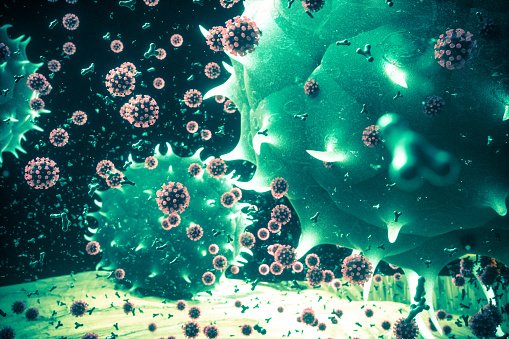April Is Primary Immunodeficiency Awareness Month
Primary Immunodeficiency Awareness Month is a US national event held throughout April.
To support this important cause, we have put together an insightful guide on primary immunodeficiency diseases (PIDDs), detailing:
What PIDDs are
PIDD signs and symptoms
How PIDDs are typically treated
More
Bookmark this PIDD Guide — and feel free to share it on social media — to help support Primary Immunodeficiency Awareness Month in April (and after).
What Is Primary Immunodeficiency?
The immune system is composed of different types of white blood cells. These cells are made in the bone marrow and travel through the bloodstream and lymph nodes. They protect and defend against attacks by "foreign" invaders such as germs, bacteria, and fungi.
Primary Immunodeficiency Diseases (PIDDs) are a group of more than 500 rare, chronic conditions in which part of the body’s immune system is missing or does not function correctly. These conditions are inherited genetic defects that can affect anyone, regardless of age, gender, or ethnicity.
In the most common PIDDs, different forms of these white blood cells or proteins are missing or do not function properly. This creates a pattern of repeated infections, severe infections and/or infections that are unusually hard to cure.
PIDD Increases Infection Risks
While there are distinct characteristics with each PIDD, there are also similarities. The most important function of the immune system is to protect against infection. Therefore, individuals with PIDD have increased susceptibility to infection.
The infections may be in the:
Skin
Sinuses
Throat
Ears
Lungs
Central nervous system
Urinary tract
Intestinal tracts
Increased susceptibility to infection may show up as repeated infections, infections that won't clear up, or unusually severe infections.
PIDD Signs & Symptoms: When to See a Doctor
Immune Deficiency Foundation (IDF) recommends that you ask your doctor to check for the possibility of PIDD if you have an infection that is:
Severe, requiring hospitalization or intravenous antibiotics.
Persistent, not completely clearing up or clearing up very slowly
Unusual, meaning caused by an uncommon organism
Recurrent, meaning it keeps coming back
Runs in the family, meaning other family members have a similar susceptibility to infection.
Other signs of primary immunodeficiency include:
Swollen lymph nodes
Enlarged spleen
Enlarged liver
Because the immune system is not functioning properly, inappropriate antibodies directed against self (autoantibodies) can form. This can result in inflammation of blood vessels, intestines, or joints.
How is primary immunodeficiency disease treated?
Treatment is very personalized, depending on the type of immunodeficiency. Below are some of the more common approaches.
Treating infections. Infections require rapid and aggressive treatment with antibiotics. Treatment might require a longer course of antibiotics than is usually prescribed. With severe or unusual infections antibiotics may require IV administration.
Preventing infections. Some people need long-term antibiotics and/or antivirals to prevent recurrent bacterial or viral infections.
Immunoglobulin therapy. Immunoglobulin (IG) consists of antibody proteins needed for the immune system to fight infections. Intravenous IG or IVIG can either be injected into a vein through an IV line or inserted underneath the skin (subcutaneous infusion). IV treatments are typically every 3 or 4 weeks, and subcutaneous infusion is needed once or twice a week.
Treatment to reconstitute the immune system. In some circumstances there may be an option for a permanent cure, such as stem cell transplants, thymic transplant, or gene therapy.
Often therapy is lifelong, although with treatment, most people with PIDD live healthy lives.
More Info & Care Options for PIDD Patients
The Immune Deficiency Foundation is a trusted resource for more information. To learn more about Primary Immunodeficiency, click here.
At LUX Infusion, our team is dedicated to providing the highest level of care to our Primary Immunodeficient patients.
Dr. Demain is an adult and pediatric immunologist who brings over three decades of experience in specialty infusion care to LUX Infusion.
Lisa Bruce RN has been an active member of the Immunoglobulin National Society since 2014. She has been a member of the Ig conference committee, Ig Standards committee, and was the first certified Immunoglobulin nurse in the state of Alaska.
LUX Infusion is ready to be part of your management team should infusions be required.
To find out more about the various IVIG infusions we offer or to learn more about how to schedule treatments at LUX Infusion, simply contact us at (907) 744-1944. You can also email us here.






